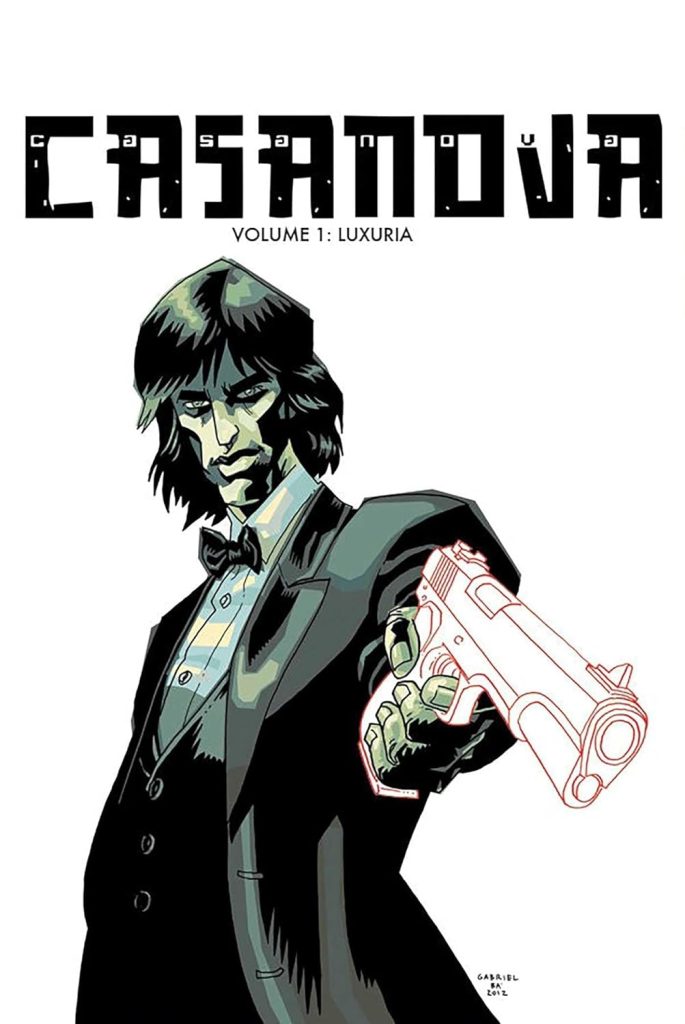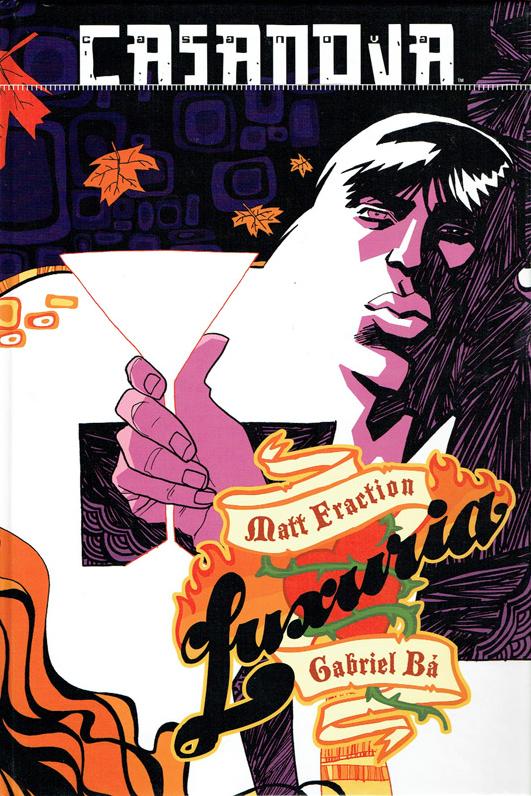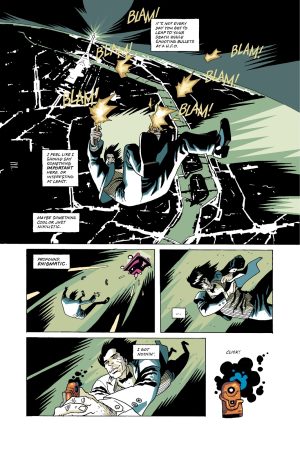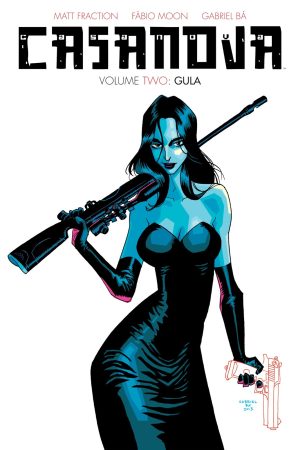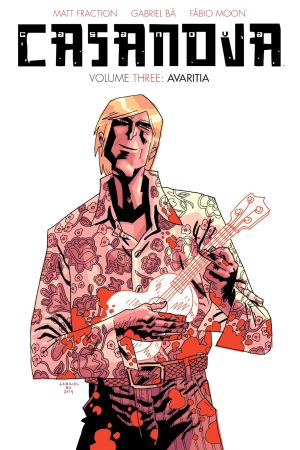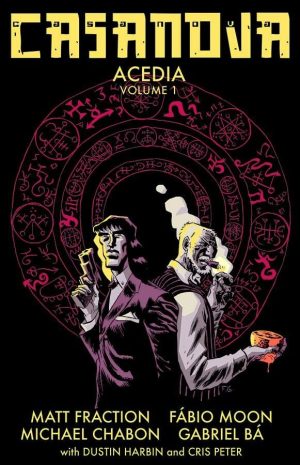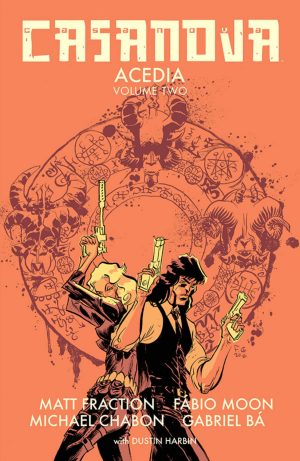Review by Karl Verhoven
Casanova Quinn is a super spy who’s not yet found the spot so tight he’s unable to escape, even if he has to leave the girl behind. There’s certainly a satirical element to him, not least that his father controls the biggest, baddest security agency on the planet, for whom he’s a top agent. Until, that is, he slips between the dimensions to an alternate reality where a criminal mastermind is the top dog, and sees his opportunity to extend his influence through other realities with Casanova as his catspaw. And while he’s attempting to play one side against the other, Casanova has to deal with troubles as assorted as the malevolent fused minds of a trio of monks, a fraudulent god and his dead twin sister.
It’s no surprise to see Warren Ellis enthusing about Casanova amid other back cover quotes, as it resembles the type of concept-heavy and action-packed SF featuring an amoral protagonist that he also writes so well. Matt Fraction, though, sets a rocket pace from the start, throwing Casanova into danger, arranging an incredible escape and laying on the technobabble.
The main influence is spy movies of the 1960s and early 1970s when every organisation had an A.C.R.O.N.Y.M., except with the pace really cranked up and the explanations low on the ground. The exact science of what Casanova, and indeed so many other characters have mastered is beyond current explanation, so just accept it and move on, otherwise the joy will pass you by entirely. In contrast to the complexities of his environment, though, Casanova’s motivations are simplicity personified: “I steal stuff. In the end I don’t care for whom. I love my job”.
Gabriel Bá has certainly picked up on that joy, and drops Casanova into a world of strange objects and bizarre shapes, not one that’s been coherently designed in any sense other than by his hand, and then draped in dark shadow. Backgrounds are packed with strange constructions, and it’s a delight to see American pop culture references reinterpreted by a magnificent Brazilian artist.
Fraction names some passing influences, and others (S.H.I.E.L.D, Wakanda, Charlie’s Angels) are easily identified, but crucially only ever the starting point, as Fraction slams everything together in one unholy splodge. Characters recur and allegiances constantly shift in a world where the only ideology is money. In one respect, though, Fraction remains too wedded to the original inspirations. Haven’t we moved on from times when women are nothing other than eye candy? For some readers having to take too much on faith may be an irritation, but weigh that against the originality and sheer energy rush.
It’s a rare graphic novel that goes through multiple editions without having a lot to recommend it, and word of mouth keeps spreading about Casanova. If you’ve not come across it before and like the look of what you see online, why not just go for the hardcover Complete Edition, which in addition to the entire story and a short sequel drawn by Fabio Moon, features page upon page of Fraction’s notes. Oh, and interviews as well. Moon is up next on the sequel Gula.
